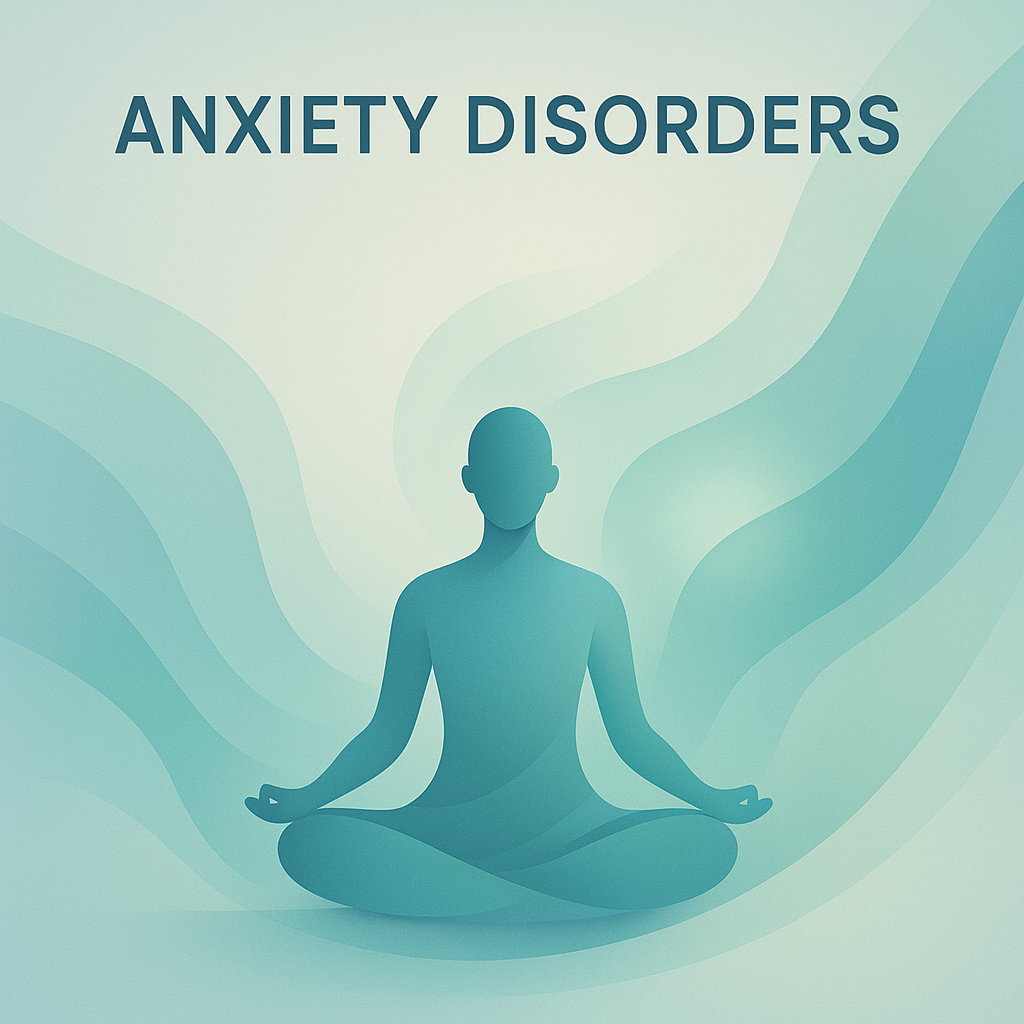What Are Anxiety Disorders?
Anxiety and Anxiety disorders are a normal response to stress, but when it becomes excessive, persistent, or interferes with daily life, it may be an anxiety disorder. These conditions are among the most common mental health issues, affecting millions worldwide.
Types of Anxiety Disorders
- Generalized Anxiety Disorder (GAD): Constant worry about everyday issues.
- Panic Disorder: Sudden episodes of intense fear, often with chest pain or shortness of breath.
- Phobias: Extreme fear of specific objects or situations.
- Social Anxiety Disorder: Fear of being judged or embarrassed in social settings.
- Obsessive-Compulsive Disorder (OCD) & Post-Traumatic Stress Disorder (PTSD): Often linked with anxiety symptoms.
Common Symptoms
- Restlessness or nervousness
- Rapid heartbeat and sweating
- Difficulty concentrating
- Sleep disturbances
- Avoiding situations due to fear
Causes and Risk Factors
Anxiety disorders may stem from a combination of genetics, brain chemistry, stressful life events, and medical conditions. Women are more prone than men, but anyone can develop them.
Treatment and Management
Effective treatments include:
- Psychotherapy (CBT): Helps reframe negative thoughts.
- Medication: Such as antidepressants or anti-anxiety medicines.
- Lifestyle changes: Exercise, mindfulness, and proper sleep can reduce symptoms.
Final Thoughts
Anxiety disorders are treatable. With the right support and professional care, individuals can regain confidence and lead fulfilling lives.

